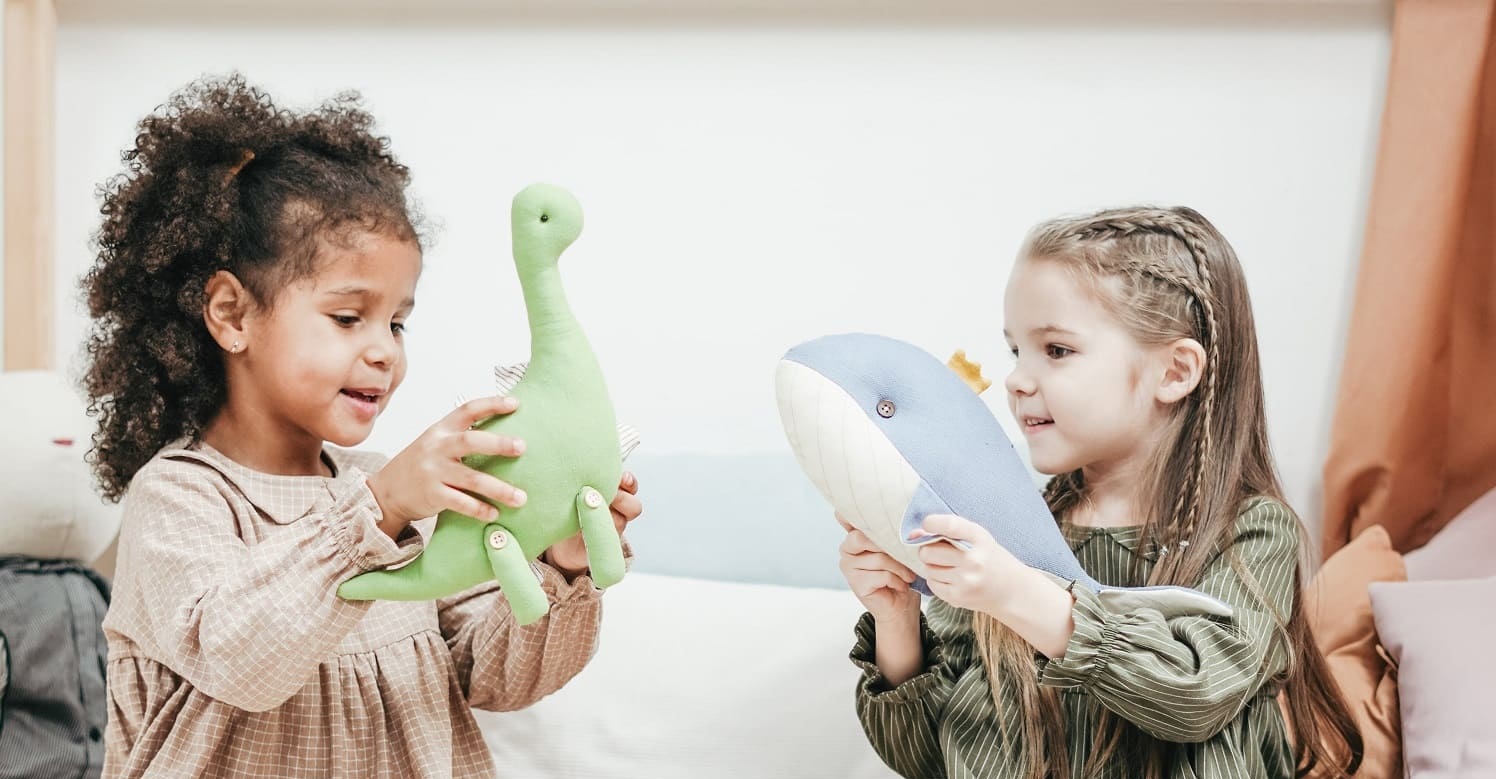Introduction:
As parents, one of our greatest desires is to see our children grow into well-rounded individuals who not only excel academically but also thrive emotionally. In today’s world, emotional intelligence (EQ) is recognized as a crucial skill that plays a pivotal role in a child’s overall development and future success.
will delve into what emotional intelligence is, its benefits, practical tips for its development, and even explore toys that can aid in this critical aspect of a child’s growth. Make sure you read till the end for a bonus tip that will play a pivotal role in enhancing emotional intelligence in children.
What is Emotional Intelligence?

Emotional intelligence, often referred to as EQ (Emotional Quotient), is the ability to recognize, understand, manage, and effectively use one’s emotions and the emotions of others. It encompasses qualities such as empathy, self-awareness, self-regulation, and strong interpersonal skills. Developing emotional intelligence is vital because it equips children with the tools to navigate complex social situations, build positive relationships, and cope with the challenges life throws their way.
Emotional intelligence includes several key components:
Self-Awareness: This is the ability to recognize and understand your own emotions as they occur. It involves being in touch with your feelings, knowing why you feel a certain way, and having insight into how your emotions can influence your thoughts and actions.
Self-Regulation: Self-regulation involves managing and controlling your emotional responses. It means being able to keep your emotions in check, especially in challenging or stressful situations. Self-regulation also includes the capacity to delay gratification and resist impulsive behaviors.
Empathy: Empathy is the ability to understand and share the feelings of others. It goes beyond sympathy and involves actively putting yourself in someone else’s shoes to comprehend their perspective and emotions.
Social Skills: Developed social skills are the abilities needed to build and maintain healthy relationships. This includes effective communication, active listening, conflict resolution, and cooperation.
Motivation: Motivation in the context of emotional intelligence refers to being driven by internal factors, such as passion and a sense of purpose, rather than relying solely on external rewards. It involves setting and working toward meaningful goals.
Emotional intelligence is not a fixed trait; it can be developed and improved over time through self-awareness, practice, and learning. As parents, nurturing your child’s emotional intelligence from a young age can provide them with invaluable life skills that contribute to their personal and professional success in the future.
Benefits of Emotional intelligence:
The advantages of nurturing emotional intelligence in children are numerous and far-reaching. Here are a few key benefits:
Improved Relationships: Children with high EQ form deeper and more meaningful connections with peers, teachers, and family members.
Effective Communication: They excel in expressing themselves and are adept at listening to others, which helps to foster healthy communication.
Conflict Resolution: High EQ children are skilled at resolving conflicts peacefully, which is a valuable life skill.
Empathy: They exhibit a strong sense of empathy, which helps them understand and support the emotions of others.
Examples of Emotional Intelligence
To better understand the concept of emotional intelligence (EQ), let’s explore some real-life examples of how EQ manifests in everyday situations:
Active Listening: Imagine your child’s friend is upset about a recent disagreement with another friend. Your child, who possesses a high level of EQ, actively listens to their friend’s feelings, asks open-ended questions, and offers empathy and support. This demonstrates empathy and effective communication, key components of emotional intelligence.
Conflict Resolution: Your children have a disagreement over sharing a toy. Instead of resorting to shouting or physical conflict, one child suggests a compromise, like taking turns or finding another activity they both enjoy. This showcases their ability to manage their emotions (self-regulation) and find solutions that benefit everyone involved.
Recognizing and Expressing Emotions: When your child feels frustrated because they can’t solve a puzzle, they express their feelings by saying, “I’m really frustrated right now because I can’t figure this out.” This demonstrates self-awareness and the capacity to express emotions in a healthy, non-destructive manner.
Empathizing with Others: If your child notices a classmate feeling lonely or left out during recess, they approach the classmate and invite them to join in their game or activity. This displays empathy and the ability to understand and respond to the emotions of others.
Resilience in Adversity: When your child faces a setback, like not making the school soccer team, they react with disappointment but quickly bounce back. They maintain a positive attitude and work harder to improve their skills for the next tryout. This showcases resilience and the motivation to overcome challenges.
Teamwork: During a group project at school, your child collaborates effectively with their peers. They listen to different viewpoints, offer constructive feedback, and ensure everyone has a chance to contribute. This demonstrates strong social skills and the ability to work well in a team.
Handling Peer Pressure: Your child faces a situation where their friends want to engage in risky behavior, like skipping school. Your child, with high EQ, is confident in making their own decisions and resisting peer pressure, choosing to stay focused on their education and values.
These examples illustrate how emotional intelligence plays a vital role in various aspects of a child’s life, from managing emotions and building positive relationships to making sound decisions and navigating social situations successfully. Developing emotional intelligence equips children with the skills and awareness they need to thrive emotionally and academically.
10 Tips for Emotional Intelligence Development in Children
Model Emotional Intelligence: Children often learn by example. Demonstrate emotional intelligence by expressing your own emotions in a healthy and constructive manner. Show them how to manage anger, sadness, and frustration effectively.
Encourage Self-Awareness: Help your child identify and label their emotions. Ask questions like, “How do you feel right now?” or “What made you feel this way?” This promotes self-awareness and emotional expression.
Active Listening: Teach your child the importance of listening attentively when others speak. Encourage them to ask questions to better understand someone else’s perspective and feelings.
Empathy Exercises: Engage in empathy-building activities like reading books or watching movies with diverse characters. Discuss the emotions and experiences of the characters to enhance your child’s empathy skills.
Problem-Solving Practice: When conflicts arise, involve your child in finding solutions together. Encourage them to brainstorm ideas and consider the feelings and needs of all parties involved.
Label Emotions in Others: While interacting with people, point out emotions in others. Say, “Look, your friend seems happy today,” or “Your teacher might be feeling a bit stressed.” This helps children recognize emotions in different contexts.
Practice Mindfulness: Introduce mindfulness exercises to help your child stay present and manage their emotions. Simple practices like deep breathing or guided imagery can be effective.
Emotion Vocabulary: Expand your child’s emotional vocabulary by discussing various emotions and their nuances. Provide words for feelings beyond just “happy” or “sad,” such as “excited,” “frustrated,” or “grateful.”
Teach Conflict Resolution: Teach your child how to handle conflicts constructively. Encourage them to use “I” statements, listen actively, and find compromises when disagreements arise.
Foster Positive Relationships: Encourage your child to build and maintain healthy friendships. Discuss the qualities of a good friend and the importance of trust, empathy, and effective communication in relationships.
Remember that emotional intelligence development is an ongoing process. Be patient and supportive as your child learns to navigate their emotions and the world around them. These tips will lay a strong foundation for their emotional intelligence, helping them thrive in various aspects of life.
5 Toys for Emotional Intelligence Development in Children
Toys can be powerful tools for emotional intelligence development. Here are four toys that can help:
Emotion Cards: These cards feature various emotions with corresponding facial expressions. They help children identify and understand emotions in themselves and others.
Feelings Bingo: This game is a fun way to teach children about emotions and encourage discussions about their feelings.
Emotion Dolls: These dolls have interchangeable facial expressions. Children can change the doll’s face to match different emotions, helping them understand facial cues.
Storybooks: Storybooks with emotional themes and relatable characters are excellent tools for discussing emotions and their impact.
Emotion Stones: Emotion stones are small, painted stones with facial expressions representing different emotions. Children can hold these stones when discussing their feelings, providing a tactile and visual aid to emotional discussions.
Bonus Tip: Nurturing Emotional Intelligence with Joonify
Joonify, India’s 1st intelligent assessment platform, plays a significant role in developing emotional intelligence in children. Joonify assesses not only a child’s cognitive development but also their emotional intelligence. Here’s how:
Talent Discovery Assessment: Joonify’s assessment includes questions that gauge a child’s cognitive development across 8 learning dimensions including emotional awareness, aptitude, logical reasoning, creativity, applied knowledge, accountability, linguistics, and kinesthetic & spatial awareness.
Personalized Insights: Upon completing the Talent Discovery Assessment, parents receive a 14+ page report providing insights into a child’s strengths and areas for improvement.
Actionable Guidance: Based on the assessment, Joonify connects you with an expert child psychologist for personalized guidance on nurturing your child’s potential and emotional intelligence effectively.
You can get started with Joonify for FREE here or opt for the premium report and unlock all the benefits for just 799 INR (early bird offer) today.
Conclusion
In the journey of raising emotionally intelligent children, there’s no one-size-fits-all approach. It’s about creating an environment where emotions are embraced, empathy is nurtured, and relationships are valued. By implementing the tips and tools mentioned in this blog, including the unique insights from Joonify, parents and caregivers can empower children with the skills they need to navigate the complexities of the emotional world. Remember, nurturing emotional intelligence is an investment that pays lifelong dividends in a child’s well-being and success.
 0
0
 Share
Share


















Comments
No comments found.